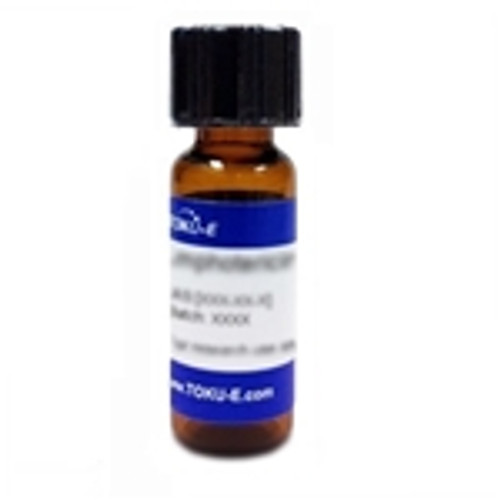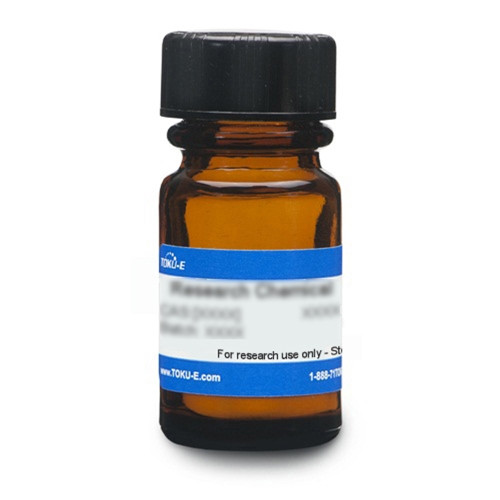LL-37 (human) Trifluoroacetate Salt (LL-37) is a naturally-occuring antimicrobial peptide that is part of the innate host immune system. It is associated with the epidermis and protects the host from bacterial infection. LL-37 has also demonstrated a range of other bioactivity including anti-influenza, immunomodulatory, and cell death activity in certain cell types. Unlike other antimicrobial peptides, LL-37 can aggregate to protect from proteolytic degredation. This protein fibril can act as a scaffold for functional and durable biomaterials for a wide range of medical and technological applications.
| Mechanism of Action | LL-37 assumes a primarily α-helical shape during membrane interactions allowing for membrane penetration, formation of transmembrane pores and bacterial lysis. |
| Cancer Applications | Accumulating evidence indicates that LL-37 also plays a significant role in human cancer. It has an anti-cancer effect in colon cancer, gastric cancer, hematologic malignancy and oral squamous cell carcinoma (Chen et al, 2018). |
| Molecular Formula | C205H340N60O53 |
| References |
Chen X et al (2018) Roles and mechanisms of human cathelicidin LL-37 in cancer. Cell Physiol. Biochem. 47:1060–1073 Engelberg Y and Landau M (2020) The human LL-37(17-29) antimicrobial peptide reveals a functional supramolecular structure. Nat. Commun. 11:3894 Kahlenberg JM and Kaplan MJ (2013) Little peptide, big effects: The role of LL-37 in inflammation and autoimmune disease. J. Immunol. 191(10):4895-4901 |







